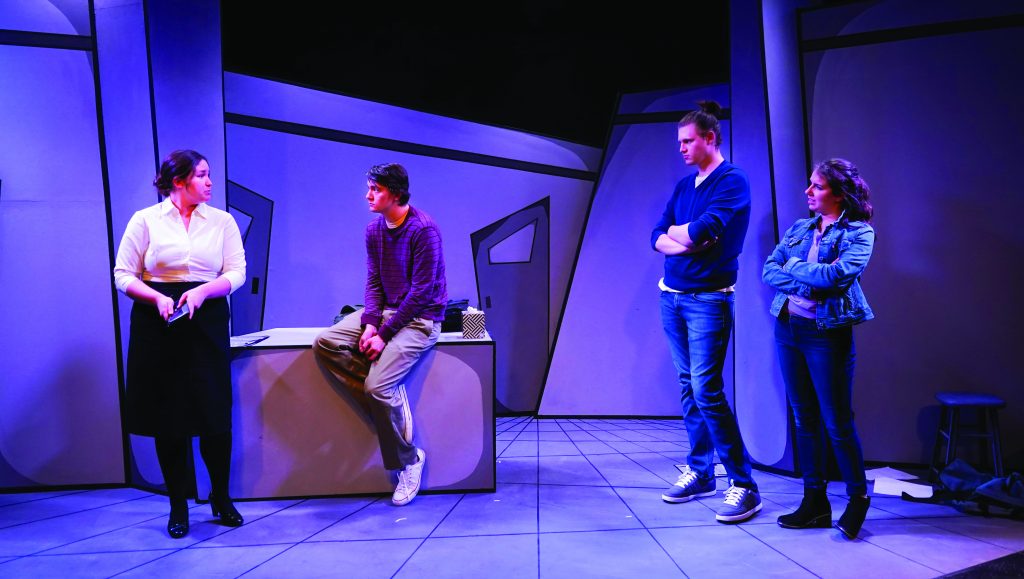
Chrys Weedon | Entertainment Editor
“Speech and Debate” follows three teens attending North Salem High School grappling with a sex scandal that is on the verge of imploding.
Madeline Weinstein, a junior theater major, attended the production.
“The characters (Diwata, an over-the-top wannabe high school actress pregnant with an unwanted baby, Howie, an openly gay high school student who goes on chatrooms with other gay men in order to hook up, and Solomon, a headstrong closeted gay student who is a reporter for the school newspaper) find their way into each other’s lives through the Speech and Debate club,” said Weinstein. Solomon, Diwata and Howie are brought together when Solomon, a tenacious reporter for the school newspaper, starts an investigation into the school’s theater teacher, Mr. Healy.
After hearing of the mayor’s inappropriate sexual contact with young men, Solomon starts building an article on the subject, much to the anger and chagrin of the school administration. Howie gets involved when he lets slip that he may have evidence against Mr. Healy. Diwata is reluctant to join in on the investigation, although she also has evidence against the teacher, and only agrees when the boys agree to become a part of the school’s new speech and debate club.
The play then follows Diwata, Howie and Solomon’s attempts to get the club funded by the school board, a process in which they have to prepare a mock debate presentation.
“The three students invite a reporter for the Oregonian newspaper to write about their presentation for Speech and Debate, and instead of addressing the actual problems that the students wanted, the reporter instead degraded them and said that this is what high-schoolers do in order to separate themselves from adults, and plugged her own book as well,” explained Weinstein.
The three students are all stubborn and strong-willed, and they bump heads often. Throughout the play, it is revealed that each of the speech and debate members have secrets of their own — secrets that could alter their lives in monumental ways.
This production follows tough topics such as sexual assault, sexual orientation and the lack of comprehensive sex education available to teenagers. “Speech and Debate” analyzes the ways in which American society fails it’s young people, refusing to speak to them frankly about substantial topics that affect their lives. The play tackles the important questions: is Oregon, and other states viewed as “liberal,” as open-minded as many people would like to believe? And are adults really keeping kid’s best interests at heart?
Some moments were laughable, while other moments were gasp-worthy. Overall, the production captures the essence of what it’s like to be a teenager: grappling with identity, personality and how they fit into the world — the subject matter is dark, but hauntingly realistic. The characters were familiar, with personalities that audience members may remember from their time in high school.
“I wasn’t so sure of what to expect when I went to see the show, so I came into the black box with an open mind,” said Weinstein. The main message, in Weinstein’s opinion, was: “to not be afraid of speaking up and doing what’s right.”
Contact the author at howlentertainment@wou.edu
Photo courtesy of Scott Grim

